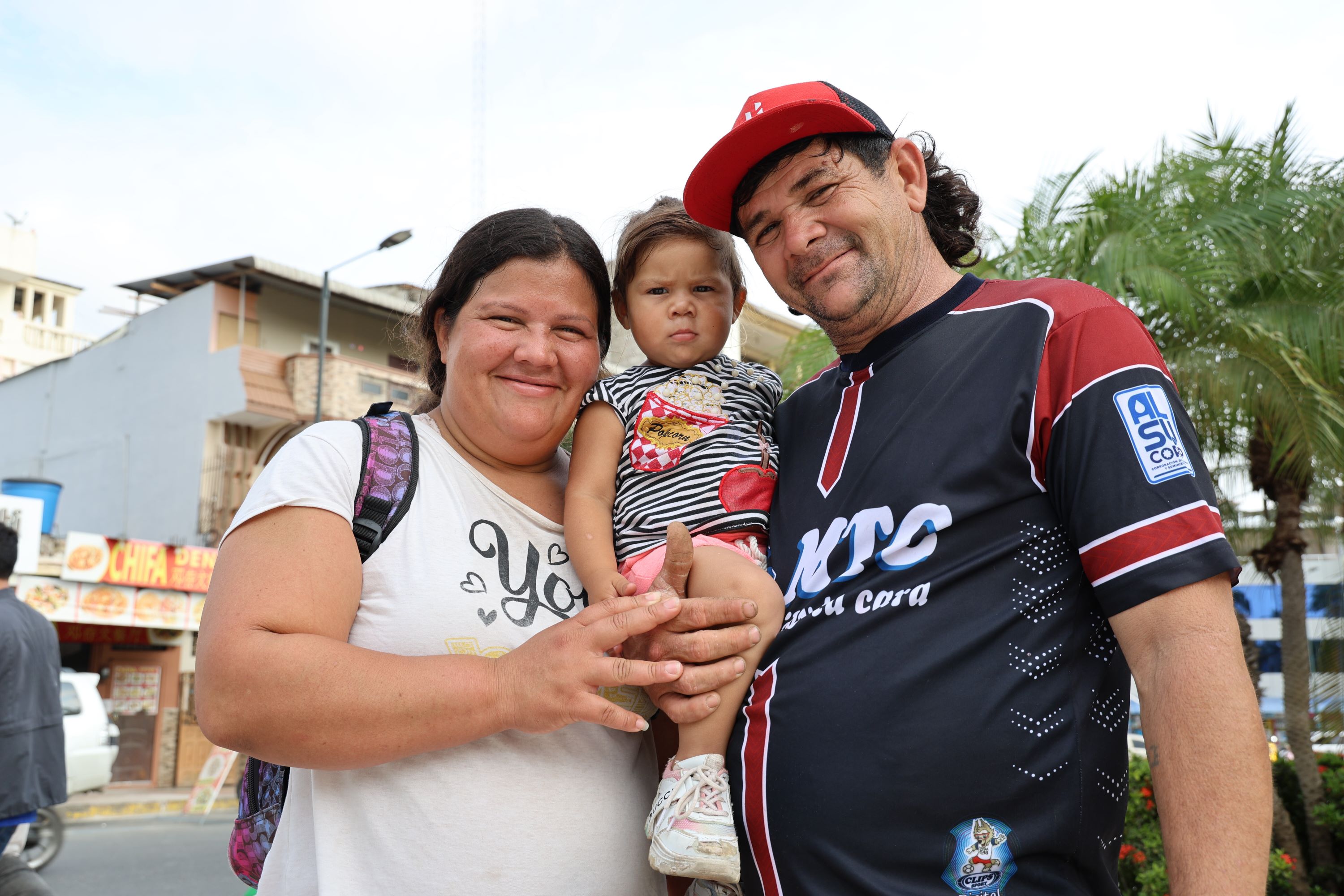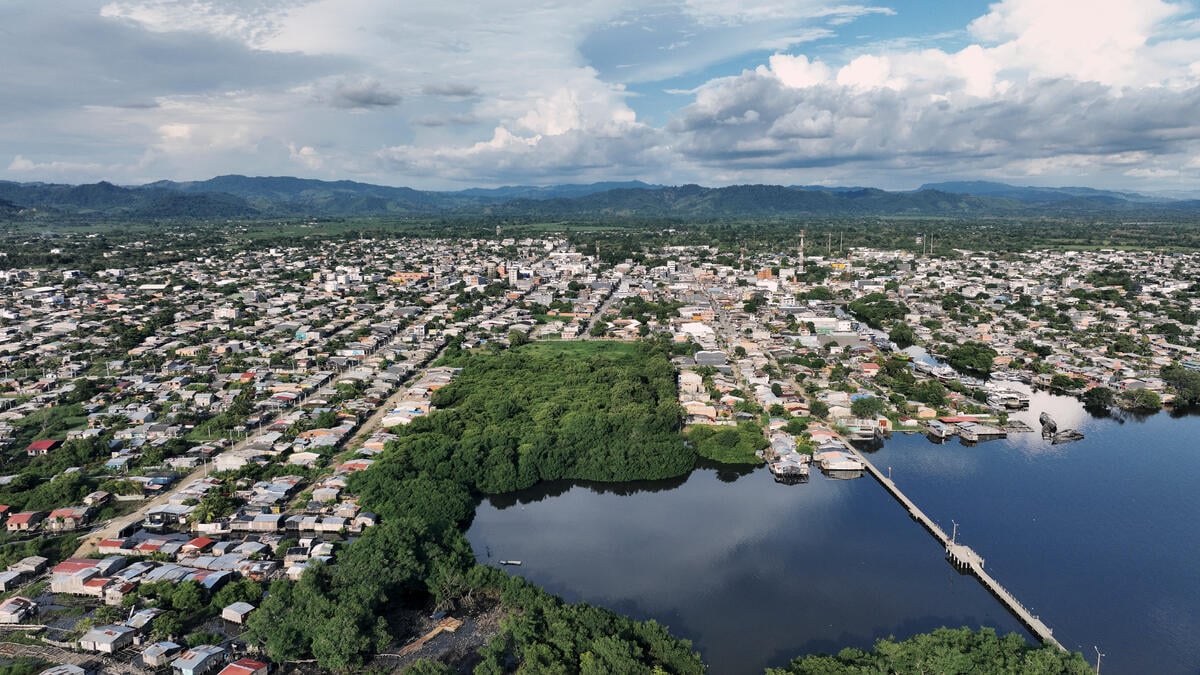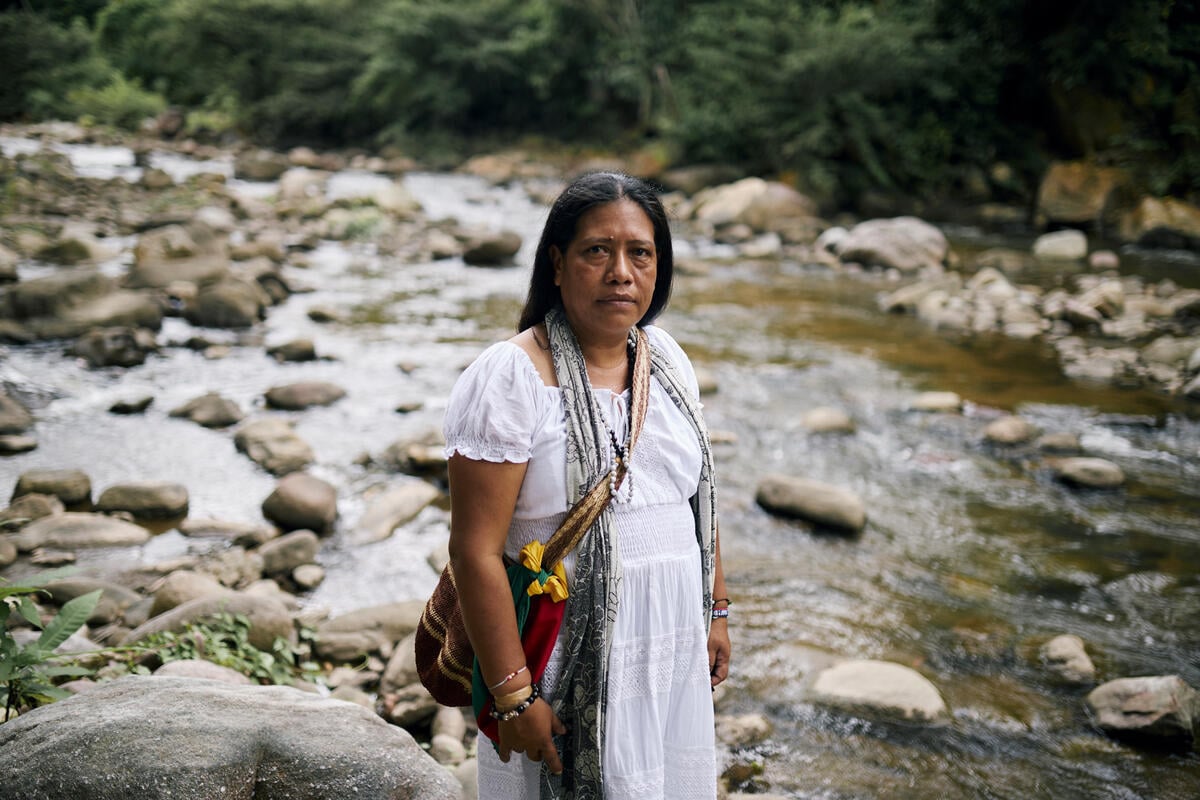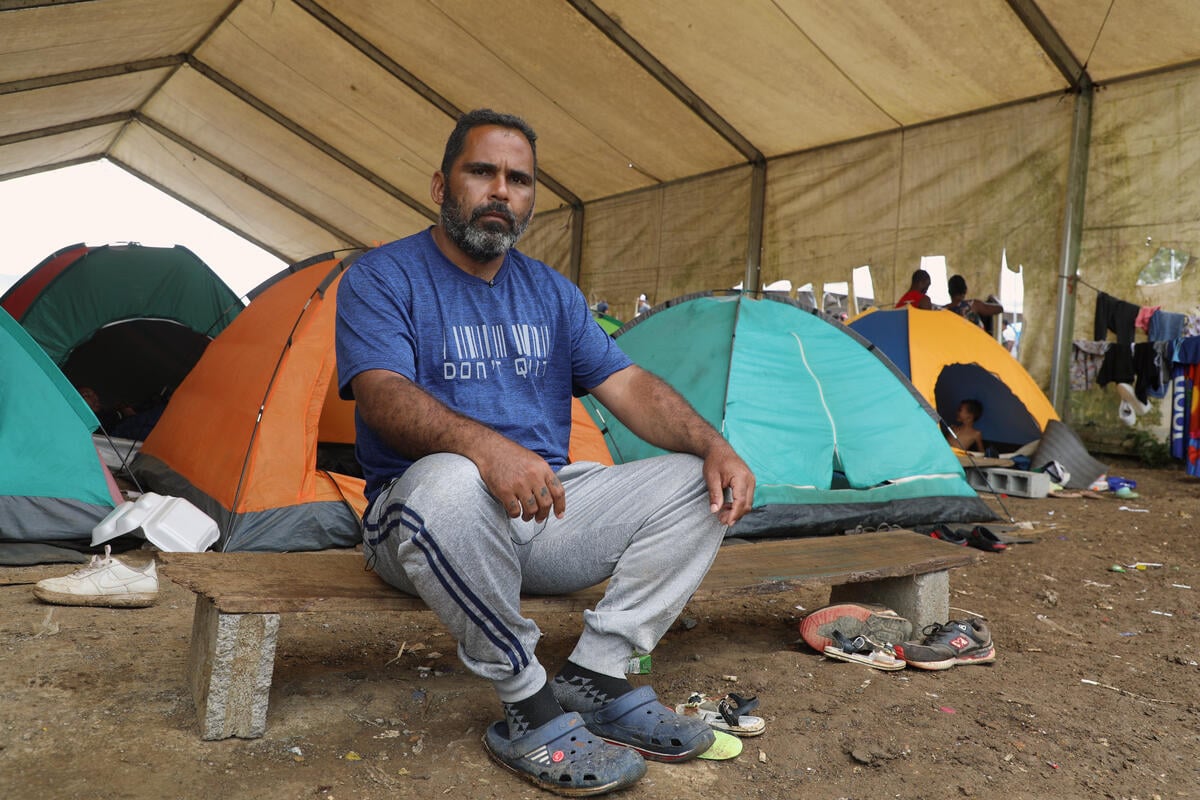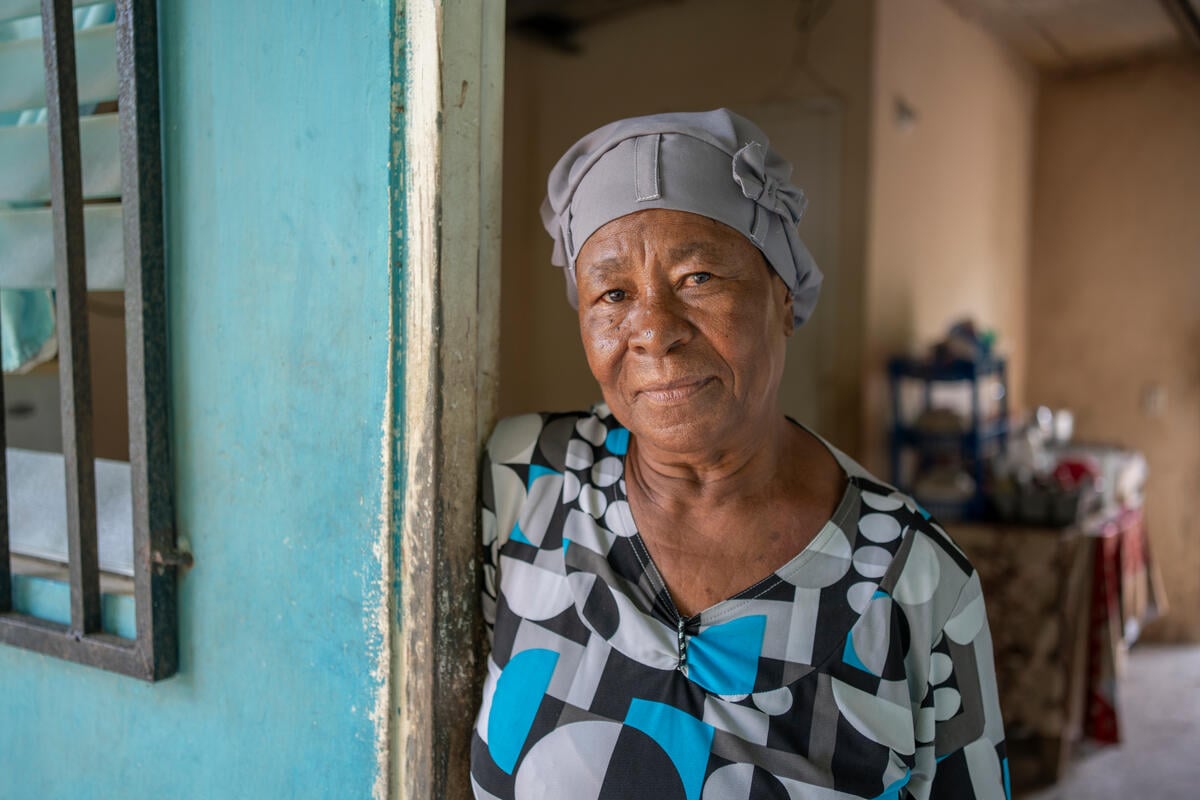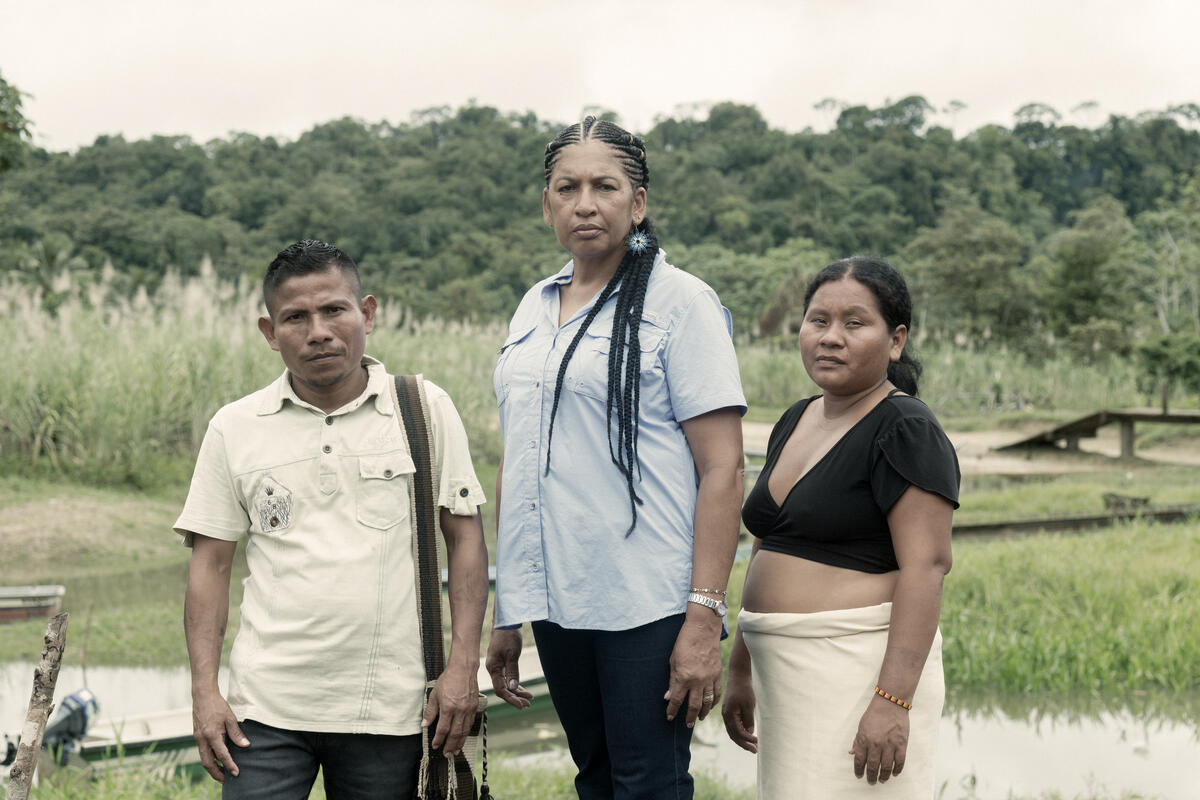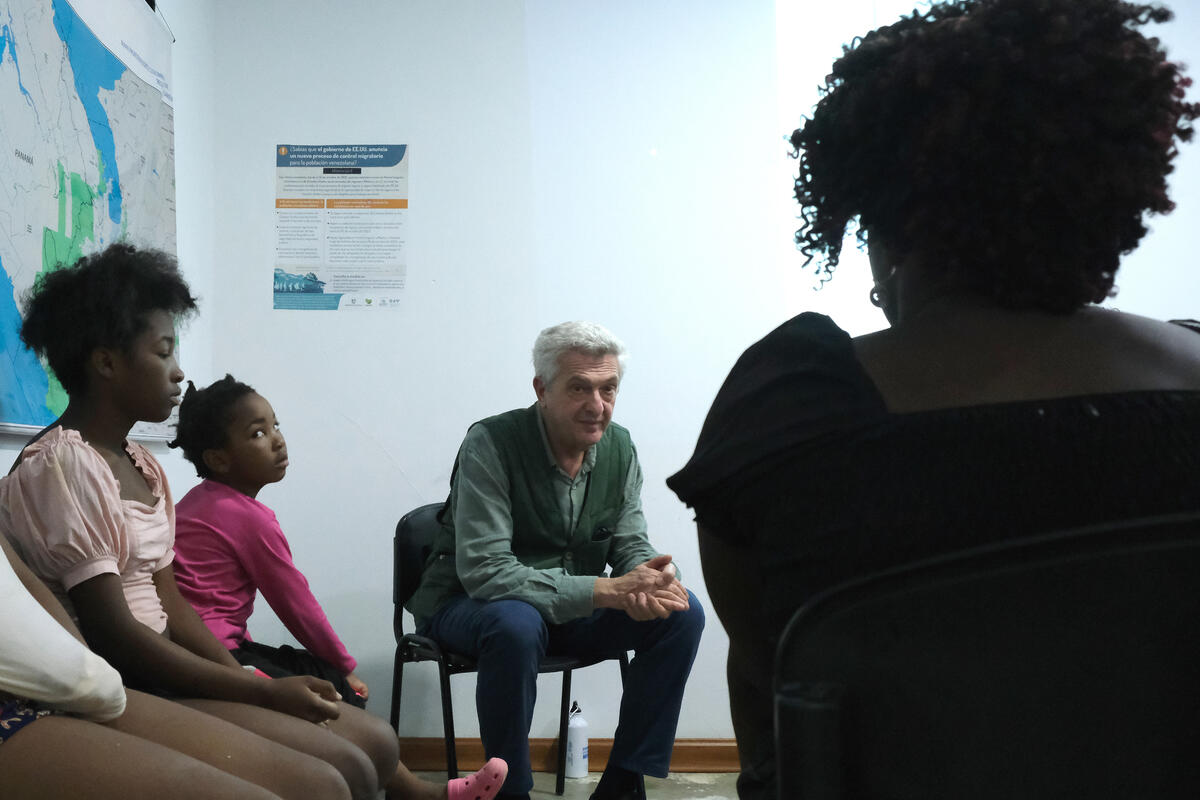Solutions for Colombia's displaced key to peace, UNHCR chief
Solutions for Colombia's displaced key to peace, UNHCR chief

BOGOTA, Colombia, (UNHCR) – On his first visit to Colombia as UN High Commissioner for Refugees, Filippo Grandi said finding lasting solutions for millions of internally displaced Colombians is key to ending Latin America’s longest-running conflict.
The visit comes at a hopeful moment in the peace process between the Government and the Revolutionary Armed Forces of Colombia (FARC), which seeks to end a five-decade armed conflict that has produced one of the world’s biggest displacement situations, with seven million people uprooted within the country’s borders.
Following his meetings with Colombian authorities, Grandi welcomed the Government’s efforts towards reintegration. "I am impressed by the legislation that has been put in place to protect and offer reparation to the victims of the conflict, including displaced people, and by the commitment of the institutions to reach these results. They are an example to the world," he said.
Grandi also acknowledged the tremendous challenges ahead for the country before these laws can be a reality for everyone. Much remains to be done in order to ensure that all victims and displaced people enjoy their human rights, settle into safe places with access to employment and basic services, and rebuild the social fabric of their communities.
"UNHCR will continue to accompany this historic process and support Colombia in making peace a lasting reality."
“While the leadership of this challenge is a national responsibility, UNHCR will continue to accompany this historic process and support Colombia in the task of making peace a lasting reality," Grandi said.
He stressed that local integration in urban areas had to be an important aspect of these efforts, including the legalization of informal settlements for internally displaced people.
Fighting in Colombia began in the mid-1960s and has since evolved into a complex conflict involving the Colombian Government, the FARC and other left-wing guerillas, paramilitary groups and crime syndicates. The violence has cost at least 220,000 lives over five decades.
During a visit to the recently legalized Las Delicias and Manuela Beltran neighbourhoods, in the outskirts of Cucuta, close to the Venezuela border in north-east Colombia, displaced people told the High Commissioner how grateful they were that, after 10 years of living in illegal settlements, they now have access to water, electricity and other basic services.
Through the Transitional Solutions Initiative, in collaboration with UNDP, the UN Refugee Agency has helped some 39,000 people in 17 urban and rural communities, including Cucuta, to make progress towards finding solutions and enjoying their basic rights such as housing, land and livelihoods.
The majority of the families who fled their homes are now in the urban outskirts of Colombia’s largest cities, including the capital, Bogota. In Soacha, a municipality near the capital, which Grandi visited on Saturday, the displaced acknowledged difficulties in legalizing their land, as their neighbourhoods grew in an unplanned, informal manner as more people kept arriving from all over the country.
"We ask only to live a bit better, to have a job, and some land where we can live."
“My family has been displaced four times in the last 22 years, we have been walking throughout the country and experiencing all kinds of violations and atrocities that have been committed to me and to my family. We ask only to live a bit better, to have a job, and some land where we can live," said a young man who had arrived two weeks earlier in Soacha with his wife and baby daughter.
Another man displaced by the conflict told Grandi about their continuing security concerns: “Since we arrived here, there have been many violations of all kind of rights, especially towards children, including recruitment and extortion. We believe the only way out is the peace process. With peace, we can finally have a rest.”
“The peace agreement will be a historic moment and an important opportunity to find solutions for both the displaced and victims. However, this agreement must be seen as the beginning rather than the end of the peace-building process,” said Grandi.
“This is a crucial moment for this country, its people, and for the entire region, and the world must continue to support this historic process to help Colombia build lasting peace,” he added.


